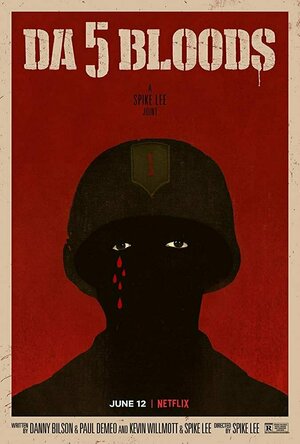Hazel (1853 KP) rated Fanya in the Underworld in Books
Dec 6, 2018
Author Jordan Elizabeth has written many stories for young adults of all sorts of genres. With Fanya in the Underworld, Jordan tackles steampunk fiction with elements of fantasy and the paranormal. Set in Alaska during the 19th century when the state was still owned by Tsarist Russia, humans rely on steamtech and spirit magic to fuel their industrious cities.
The story begins shortly after the death of Fanya's father, leaving her as heir to his estate. Unfortunately, her step-mother has overruled her right to her inheritance. By making a fuss to the council, Fanya inadvertently puts both her life and the life of her younger sister in danger. Desperate to protect her sister from the clutches of a mysterious Englishman, Fanya finds herself in the wilderness where the indigenous, magical folk live. Despite having lived in a city her entire life, Fanya soon discovers she has far more in common with the people in the untamed wild.
Whilst a work of imaginative fiction, Fanya in the Underworld works with the historical truth about settlers moving to Alaska, Canada and the United States. Those from Europe who travelled to North America drove out the indigenous folk, destroyed their land and culture and deemed them to be lesser beings. The same has occurred in this novel in which the natives are banned from the cities, treated like animals and even murdered just for being who they are.
By caring so much about her sister, Fanya discovers the truth about the way the cities developed and is shocked by the revelation. Although her sister is at the forefront of her mind, her actions cause huge changes in Alaska resulting in a favourable, although unpredictable, conclusion.
Jordan Elizabeth draws the reader into the steampunk world of Tsarist Alaska. With the aid of illustrations by Aaron Siddal, Fanya in the Underworld is an exciting story unlike any written before. Unique characters, unique scenarios, and a fantastic ending, what more could anyone want?
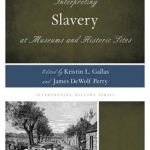
Interpreting Slavery at Museums and Historic Sites
Kristin L. Gallas, James DeWolf Perry and Rex M. Ellis
Book
Interpreting Slavery at Museums and Historic Sites aims to move the field forward in its collective...
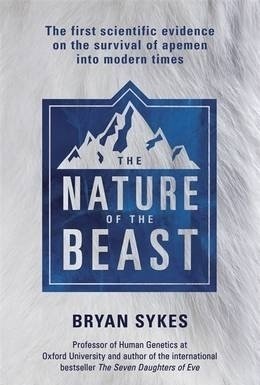
The Nature of the Beast: The First Genetic Evidence on the Survival of Apemen, Yeti, Bigfoot and Other Mysterious Creatures into Modern Times
Book
Professor Bryan Sykes, the world's leading expert on human genetics, set a goal to locate and...
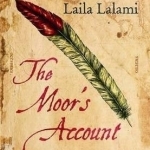
The Moor's Account
Book
In 1527 the Spanish conquistador Panfilo de Narvaez arrived on the coast of modern-day Florida with...
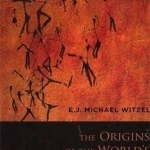
The Origins of the World's Mythologies
Book
In this comprehensive book Michael Witzel persuasively demonstrates the prehistoric origins of most...

Together We Rise: Behind the Scenes at the Protest Heard Around the World
Women’s March Organizers and Conde Nast
Book
WITH ESSAYS BY: ROWAN BLANCHARD - SENATOR TAMMY DUCKWORTH - AMERICA FERRERA - ROXANE GAY - ILANA...
politics social issues

Lone Star Nation: How a Ragged Army of Volunteers Won the Battle for Texas Independence - And Changed America
Book
From bestselling historian and long-time Texan H. W. Brands, a richly textured history of one of the...

Kids Yogaverse: I AM LOVE
Health & Fitness and Book
App
Kids Yogaverse: I AM LOVE is “Highly recommended” by the US Surgeon General as a healthy app...

American Survival Guide
Lifestyle and Magazines & Newspapers
App
Keep yourself and your family prepared for when disaster strikes. Get outdoor survival tips to deal...
Matt Geiger (15 KP) rated Da 5 Bloods (2020) in Movies
Jun 27, 2020
Continuing Lee’s trend of fusing the past and present together to show that things are definitely still yet to change, Da 5 Bloods finds four African American veterans returning to Vietnam to search for the remains of their commanding officer, “Stormin’” Norman (Chadwick Boseman), and the stash of gold that they found and collectively buried, gold that was initially offered to the indigenous Southern Vietnamese by the CIA as payment for their support of US troops, but taken by the “Bloods” as compensation for their needless sacrifices for a country that has never given them the treatment they deserve despite the fact that they played a pivotal role in helping to make it what it is today. The ultimate goal is nothing that hasn’t been depicted before, but the controversy of the Vietnam War and the experience of combat and violence spills over into today; some of the film’s most striking messages are effectively relayed through a handful of very committed performances from the well-casted ensemble, with Delroy Lindo serving as the beating emotional heart of the film. It’s a career-defining showcase for Lindo, who, as the PTSD-stricken Trump supporter Paul, carries the most weight on his shoulders. He wrestles with personal demons and survivor’s guilt for more than half of his life because of the choices he made during his time in the service, time he and the other Bloods couldn’t avoid because, unlike the privileged white men of America, they were not given the same opportunities to dodge the draft. The disenfranchisement and aimlessness that Lindo merely alludes to through his heart-wrenching performance provides the foundation for the complicated relationship Paul shares with his estranged son, David (Jonathan Majors in the film’s other award-worthy performance), who tags along for the ride in an effort to heal old wounds and bury a deeply-lodged hatchet.
The natural chemistry Lindo shares with the other Bloods (Clarke Peters, Norm Lewis, and Isiah Whitlock, Jr.) is palpable in both the past and present, which blend into one as the screen slides from one aspect ratio to another, shifting from flashbacks of one wartorn world to the present day, in which we find ourselves fighting a different, yet altogether similar kind of war. That these changes in aspect ratios never appear as visually perceived cuts is simply another one of the ways in which Spike Lee seamlessly reminds us that then and now are cut from the same cloth, complete with the same heart-wrenching tragedies that give way to the camaraderie that is necessary to ensure that the proper names get written back into history where they belong. How the four vets are visually represented in their recollections of their commander, which are stripped of the psychedelic imagery associated with previous Vietnam War films in order to cut deeper into understanding what the Bloods’ place in Vietnam is supposed to mean (if it means anything at all), further adds to Lee’s ability to find the haunting parallels between the two time periods that comprise the film.
Spike Lee gets at so many unique and timely concepts that seem perfectly applicable to what’s going on in the world, but where he stumbles is how he goes about explicating these ideas. As a storyteller, Lee is at his best when his narratives gradually develop at a reasonably decisive pace until the tension is fully amplified by the story’s climactic boiling point, at which point there’s no turning back. Such was the nature of Do the Right Thing and, more recently, BlacKkKlansman. The same cannot entirely be said for Da 5 Bloods, which struggles to find a consistent pace and tone during its first act, in which it tries to introduce all of the central ideas at once, along with some unnecessary side stories that carry little to no weight in comparison to the central task and are ultimately resolved in schmaltzy, unsatisfying ways. Moreover, while investment in the film can be maintained throughout, too often is this investment reinforced by the unnecessary moments that serve as detriments to the sequences of dramatic consequence and just might take you out of the story, causing you to restart your investment. Every act has at least one of these moments, with the final result unfortunately falling short of the expectations of some of the genres that are molded into the Bloods’ journey through the Vietnamese jungle. The overtly patriotic and quite distracting score from Terence Blanchard (regardless of whether or not its inclusion was intended as irony) does not help the matter, with many of the best scenes occurring either in silence or alongside the soulful tracks of Marvin Gaye’s What’s Going On album.
Even when Spike Lee stumbles in the execution of his argument, what ultimately matters is the argument itself; while the film begins and ends rather heavy-handedly, telling the viewer things they are bound to already know and incorporating footage that doesn’t need to be there for the point to get across, the sacrifices that Lee chooses to detail and their ramifications for the state of our country to today give the film a degree of value at a time like this, and he is the only director who could bring these issues to the forefront in such an entertaining way. It may not be as good or accessible as his best work, but the calls to action that he has long been affiliated with echo through jungles and cities in equal measure.
What did you guys think of Da 5 Bloods? Agree? Disagree?

